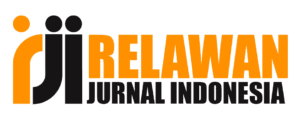The Impact of E-Government on Social Inclusion: A Bibliometric Review of E-Inclusion Research
Abstract
This study explores the intersection of e-government and social inclusion through a bibliometric analysis of e-inclusion research. Drawing on 97 publications indexed in Scopus, the analysis was conducted using VOS viewer and NVivo 12 Plus to identify research trends, dominant themes, and collaborative networks among scholars, institutions, and countries. The findings reveal that e-government plays a critical role in promoting inclusive governance by enhancing digital access, participation, and service delivery. However, challenges such as the digital divide and unequal digital skills continue to hinder broader social inclusion. Thematic clusters identified include empowerment, accessibility, digital literacy, and trust. Developed and developing countries alike contribute to this field, although research remains uneven. This study offers valuable insights into the evolving discourse on e-inclusion and highlights gaps for future exploration. The findings are intended to inform policymakers, scholars, and practitioners in designing more equitable and inclusive digital governance frameworks.
References
Ahmad, N., Alfira, S., & Paripurna, C. F. (2025). Corruption In Digital Transformation : A Case Study Of The Impact Of Misappropriation Of Kominfo 4g Bts Project Funds On E-Government Governance In Indonesia. ARRUS Journal of Social Sciences and Humanities, 5(3), 1046–1057.
Almuwil, A., Weerakkody, V., & El-Haddadeh, R. (2011). A conceptaul study of the factors influencing e-inclusion. Proceedings of the European, Mediterranean and Middle Eastern Conference on Information Systems - Informing Responsible Management: Sustainability in Emerging Economies, EMCIS 2011, 2011(2008), 198–209.
Arief, M. F. (2022). Implementation Of Electronic Government At The Department On Integrated One Door Investment And Licensing Services, Deli Serdang Regency. Inspirasi & Strategi (INSPIRAT): Jurnal Kebijakan Publik & Bisnis, 12(2), 59–68. https://doi.org/10.35335/inspirat.v12i2.60
Asadon, M. F. A., Brucal, A. P., Claveria, P. S. L., Lac-, J. T. N., Malang, B. P., & Malang, J. D. S. (2024). Enhancing Public Service Delivery and Citizen Participation : The Synergistic Effects of E- Governance and Social Media. International Journal of Multidisciplinary: Applied Business and Education Research, 5(11), 4740–4758. https://doi.org/10.11594/ijmaber.05.11.35
Astawa, I. P. P. (2023). E-Government: Integrated, Fast, Certain and Easy Public Service Quality Management in Bali. Management and Applied Social Studies Review, 1(1), 29–35. https://doi.org/10.32795/massiv.v1i1.3892
Banabakova, V. (2024). Digitalization Opportunities and Necessary Digital Skilss in Social Logistics (Specigically Logistics in Servicing the Unemployed, Disabled and Disadvantaged People). SCIENCE International Journal, 3(4), 167–173. https://doi.org/10.35120/sciencej0304167b
Bertot, J. C., Jaeger, P. T., & Hansen, D. (2012). The impact of polices on government social media usage: Issues, challenges, and recommendations. Government Information Quarterly, 29(1), 30–40. https://doi.org/10.1016/j.giq.2011.04.004
Castro, C., & Lopes, I. C. (2023). E-government as a tool in controlling corruption. International Journal of Public Administration. https://doi.org/10.1080/01900692.2022.2076695
Chadwick, D., Richards, C., Molin, M., & Strnadová, I. (2023). Digital inclusion and people with learning disabilities. British Journal of Learning Disabilities, 51(2), 119–124. https://doi.org/10.1111/bld.12530
Chohan, S. R., & Hu, G. (2022). Strengthening digital inclusion through e-government: cohesive ICT training programs to intensify digital competency. Information Technology for Development, 28(1), 16–38. https://doi.org/10.1080/02681102.2020.1841713
Ciancarini, P., Giancarlo, R., & Grimaudo, G. (2024). Digital Transformation in the Public Administrations: A Guided Tour for Computer Scientists. IEEE Access, 12, 22841–22865. https://doi.org/10.1109/ACCESS.2024.3363075
Doran, N. M., Puiu, S., Bădîrcea, R. M., Pirtea, M. G., Doran, M. D., Ciobanu, G., & Mihit, L. D. (2023). E-Government Development—A Key Factor in Government Administration Effectiveness in the European Union. Electronics (Switzerland), 12(3). https://doi.org/10.3390/electronics12030641
Dugdale, A., Daly, A., Papandrea, F., & Maley, M. (2005). Accessing e-government: Challenges for citizens and organizations. International Review of Administrative Sciences, 71(1), 109–118. https://doi.org/10.1177/0020852305051687
Erissa, D., & Widinarsih, D. (2022). Akses Penyandang Disabilitas Terhadap Pekerjaan: Kajian Literatur. Jurnal Pembangunan Manusia, 3(1). https://doi.org/10.7454/jpm.v3i1.1027
Esteban-Navarro, M. Á., García-Madurga, M. Á., Morte-Nadal, T., & Nogales-Bocio, A. I. (2020). The Rural Digital Divide in the Face of the COVID-19 Pandemic in Europe—Recommendations from a Scoping Review. Informatics, 7(4), 1–18. https://doi.org/10.3390/informatics7040054
Farida, I., & Lestari, A. (2021). Implementation of E-Government as a Public Service Innovation in Indonesia. RUDN Journal of Public Administration, 8(1), 72–79. https://doi.org/10.22363/2312-8313-2021-8-1-72-79
Gallagher, M., Najjuma, R., & Nambi, R. (2023). Bidi Bidi Creativity: The Liminality of Digital Inclusion for Refugees in Ugandan Higher Education. Social Inclusion, 11(3), 309–319. https://doi.org/10.17645/si.v11i3.6686
Galushi, L. T., & Malatji, T. L. (2022). Digital Public Administration and Inclusive Governance at the South African Local Government, in Depth Analysis of E-Government and Service Delivery in Musina Local Municipality. Academic Journal of Interdisciplinary Studies, 11(6), 116–126. https://doi.org/10.36941/ajis-2022-0154
Good Things Foundation. (2011). What is the National Digital Inclusion Network? https://www.goodthingsfoundation.org/our-services/national-digital-inclusion-network.html
Grimsley, M., & Meehan, A. (2007). e-Government information systems: Evaluation-led design for public value and client trust. European Journal of Information Systems, 16(2), 134–148. https://doi.org/10.1057/palgrave.ejis.3000674
Haniko, P., Sarumaha, Y. A., Satria, E., HS, N., & Anas. (2023). Building Students’ Critical Thinking Skill through Problem-Based Learning Model. Widya Accarya, 14(1), 92–98. https://doi.org/10.46650/wa.14.1.1409.92-98
İri, R., & Ünal, E. (2024). Bibliometric Analysis Bibliometric Analysis of Research (1980-2023). Ahi Evran Üniversitesi Sosyal Bilimler Enstitüsü Dergisi, 10(2), 386–403. https://doi.org/10.31592/aeusbed.1446738
Isma, A., Hajar Dewantara, Andi Naila Quin Azisah Alisyahbana, & Salim Diarra. (2025). Digital Literacy, Environment, and E-Commerce Use Toward Digital Entrepreneurial Intentions via Social Media among Generation Z Students. Quantitative Economics and Management Studies, 6(1), 57–68. https://doi.org/10.35877/454ri.qems3853
Kadewandana, D., & Kaligis, R. A. W. (2024). The Role of Information and Communication Technology (ICT) in E-Government: A Literature Review of Sustainable Development Aspects. CoverAge: Journal of Strategic Communication, 14(2), 91–101. https://doi.org/10.35814/coverage.v14i2.6339
Karunia, R. L., Budiaji, R., Suzana, R., Dewi, K. S., & Prasetyo, J. H. (2023). Analysis of the Factors that Affect the Implementation of E-Government in Indonesia. International Journal of Membrane Science and Technology, 10(3), 46–54. https://doi.org/10.15379/ijmst.v10i3.1216
Kondowe, C., & Chigona, W. (2019). Social Inclusion in the Digital Era: Rethinking Debates and Narratives in the World Bank Report. https://digitalcommons.kennesaw.edu/cgi/viewcontent.cgi?article=1019&context=acist
Liotta, L. A. (2023). Digitalization and Social Inclusion: Bridging the Digital Divide in Underprivileged Communities. Global International Journal of Innovative Research, 1(1), 7–14. https://doi.org/10.59613/global.v1i1.2
Mervyn, K., Simon, A., & Allen, D. K. (2014). Digital inclusion and social inclusion: a tale of two cities. Information Communication and Society, 17(9), 1086–1104. https://doi.org/10.1080/1369118X.2013.877952
Morte-Nadal, T., & Esteban-Navarro, M. A. (2022). Digital Competences for Improving Digital Inclusion in E-Government Services: A Mixed-Methods Systematic Review Protocol. International Journal of Qualitative Methods, 21, 1–9. https://doi.org/10.1177/16094069211070935
Mukminto, E., Martitah, M., Damayanti, R., Wedhatami, B., & Mardhiyana, R. (2023). Public Services Versus Covid-19: Participation of Villagers in Public Service based on E-Government in Pandemic. Jurnal Pengabdian Hukum Indonesia (Indonesian Journal of Legal Community Engagement) JPHI, 6(1), 1–16. https://doi.org/10.15294/jphi.v6i1.60650
Popovych, V., Shcherbyna, S., Barshatska, H., & Baluchtina, O. (2021). E-government Potential in Social Service Delivery: Regional Context. SHS Web of Conferences, 100, 04003. https://doi.org/10.1051/shsconf/202110004003
Rafiq, M. I. (2023). Bridging the Digital Divide through Social Inclusion: A Cross- Country Analysis Study of Pakistan, India and Bangladesh. Journal of Economic Impact, 5(1), 69–75. https://doi.org/10.52223/jei5012308
Ranchordás, S. (2020). The Digitization of Government and Digital Ecxlusion. In G. F. Mendes & C. B. Morais (Eds.), Direito Publico E internet: Democraca, Redes Socials E Regulacao Do Ciberespaco (pp. 3–7).
Reisdorf, B., & Rhinesmith, C. (2020). Digital inclusion as a core component of social inclusion. Social Inclusion, 8(2), 132–137. https://doi.org/10.17645/si.v8i2.3184
Retnowati, R., Wahyudi, E. N., & Anis, Y. (2022). Mengukur E-Participation Masyarakat di Era Transformasi Digital dengan Metode Multi Factor Evaluation Process (MFEP). JUSIFO (Jurnal Sistem Informasi), 8(2), 51–60. https://doi.org/10.19109/jusifo.v8i2.13774
Reyna, J., Gabardo, E., & Santos, F. de S. (2020). Electronic Government, Digital Invisibility and Fundamental Social Rights. Sequencia, 41(85), 30–50. https://doi.org/10.5007/2177-7055.2020v41n85p30
Salahudin, S., Nurmandi, A., & Loilatu, M. J. (2020). How to Design Qualitative Research with NVivo 12 Plus for Local Government Corruption Issues in Indonesia? Jurnal Studi Pemerintahan, 11(3). https://doi.org/10.18196/jgp.113124
Serang, A. E. D. (2024). Banking Digitalization in the Era of Revolution 5 . 0 : Opportunities and Risks for Financial Inclusion. Nomico Journal, 1(9), 13–23.
Sira, M., & Kuzior, A. (2025). Digitalization of Government Management Processes in the Context of Sustainable Development. Management Systems in Production Engineering, 33(2), 289–310. https://doi.org/10.2478/mspe-2025-0029
Soriano, A. J. Z. G. de, Montoro, M. A., & Colón, A. M. O. (2024). Digital Teaching Competence and Educational Inclusion in Higher Education. A Systematic Review. Electronic Journal of E-Learning, 22(1), 31–45. https://doi.org/10.34190/ejel.22.1.3139
Sulasula, J., & Moreno, F. (2023). Public Service Delivery System in State Universities and Colleges: Controversies and Best Practices Across Frontline Services. SSRN Electronic Journal, 1–22. https://doi.org/10.2139/ssrn.4521207
Sumpena, A., Pratiwi, G., Nurul, I., Arum, T., Farodiyah, N. N., Apriliyanti, N. A., Ilmu, M., & Universitas, K. (2024). Tren Penelitian dengan Teori Unified Theory of Acceptance and Use of Technology (UTAUT) dalam Jurnal Scopus Berdasarkan Analisis Bibliometrik. Dewatuna: Jornal of Cummunication and Islamic Broadcasting, 4(6), 2128–2144. https://doi.org/10.47467/dawatuna.v4i6.5619
Supardi, S., Agustinova, D. E., Putro, S. T. J., & Septiantoko, R. (2023). E-Services: Implementation of Digital-Based Public Services in The 4.0 Era. Athena: Journal of Social, Culture and Society, 1(3), 87–92. https://doi.org/10.58905/athena.v1i3.40
Trubetskaya, O. V. (2020). Digitalization Of The State Sector: Foreign Experience And The Russian Future. European Proceedings of Social and Behavioural Sciences, 275–279. https://doi.org/10.15405/epsbs.2020.04.35
Vaismoradi, M., Jones, J., Turunen, H., & Snelgrove, S. (2016). Theme development in qualitative content analysis and thematic analysis. Journal of Nursing Education and Practice, 6(5). https://doi.org/10.5430/jnep.v6n5p100
Vandenbroeck, M. (2007). Beyond anti‐bias education: Changing conceptions of diversity and equity in European early childhood education. European Early Childhood Education Research Journal, 15(1), 21–35.
Verdegem, P. (2011). Social media for digital and social inclusion: Challenges for information society 2.0 research & policies. TripleC, 9(1), 28–38. https://doi.org/10.31269/triplec.v9i1.225
Wulandari, D. S., & Cahyonowati, N. (2024). A Bibliometric Examination of Studies on Corporate Tax Avoidance Utilizing Vosviewer Software. Jurnal Proaksi, 11(2), 265–281. https://doi.org/10.32534/jpk.v11i2.5587
Wulur, F. C., & Mulyanti, D. (2023). Analisis Pengaruh Pemanfaatan Media Sosial Dalam Penyebaran Layanan Informasi Publik Di Pemerintah. MANABIS: Jurnal Manajemen Dan Bisnis, 2(1), 37–45. https://doi.org/10.54259/manabis.v2i1.1549
Yasir, A., Hu, X., Ahmad, M., Rauf, A., Shi, J., & Nasir, S. A. (2020). Modeling impact of word of mouth and E-government on online social presence during COVID-19 outbreak: A multi-mediation approach. International Journal of Environmental Research and Public Health, 17(8). https://doi.org/10.3390/ijerph17082954
Copyright (c) 2025 Journal of Governance and Local Politics (JGLP)

This work is licensed under a Creative Commons Attribution-NonCommercial-NoDerivatives 4.0 International License.










